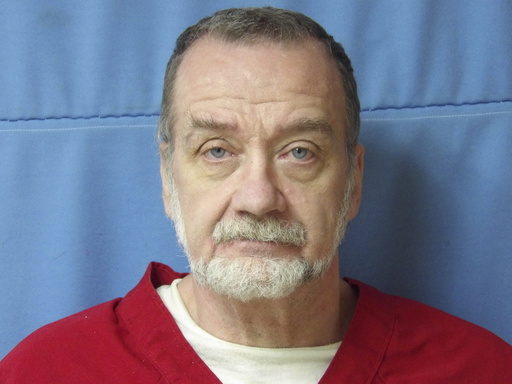JACKSON, Miss. — The attorney general of Mississippi is seeking a date for the execution of Charles Ray Crawford, a man who has spent three decades on death row. However, Crawford’s legal team argues that this request is premature since he plans to appeal to the U.S. Supreme Court.
Crawford, now 58 years old, was sentenced to death for the 1993 abduction and murder of 20-year-old Kristy Ray, a student at a local community college. During his trial in 1994, jurors referenced a previous rape conviction as an aggravating factor in their decision to sentence him to death. His attorneys indicated on Monday that they intend to contest this conviction in the U.S. Supreme Court after receiving an unfavorable ruling from a lower court last week.
The circumstances of the crime are alarming. Crawford was taken into custody a day after Ray’s kidnapping, during which she was murdered in Tippah County, located in northern Mississippi. He asserted to law enforcement that he had blacked out and could not remember the act of killing Ray. At the time of his arrest, Crawford was already facing charges for allegedly assaulting another woman with a hammer.
Crawford’s trial for the assault was subsequently postponed for several months, and he was ultimately found guilty. Following this, he was also convicted of raping a 17-year-old girl who was connected to the victim of the hammer assault. Both crimes took place in close temporal proximity, with Crawford claiming he experienced blackouts that left him with no recollection of either the hammer attack or the rape.
During the penalty phase of his capital murder trial, jurors determined that his previous rape conviction constituted an “aggravating circumstance,” contributing to their verdict of death. In his most recent federal appeal concerning the rape conviction, Crawford’s legal representatives argued that he did not receive adequate defense regarding his insanity claim. Court documents reveal that although Crawford underwent a mental evaluation at the state hospital, the trial judge consistently refused to allow a psychiatrist or any other mental health specialist, apart from the state-appointed expert, to support Crawford’s defense.
Recently, a divided panel of the 5th U.S. Circuit Court of Appeals ruled against Crawford’s appeal. However, dissenting judges expressed concerns that he had received an inadequately prepared insanity defense. These judges noted that it took an extended period for a qualified physician to perform a comprehensive assessment of Crawford’s mental health.
One dissenting opinion included comments from neurologist Dr. Siddhartha Nadkarni, who assessed Crawford. He stated, “Charles was laboring under such a defect of reason from his seizure disorder that he did not understand the nature and quality of his acts at the time of the crime. He is a severely brain-injured man… who was essentially not present in any useful sense due to epileptic fits at the time of the crime.”
In cases involving the death penalty, it is quite common for multiple appeals to be filed. Crawford’s legal situation has already involved several appeals based on varying legal arguments. Shortly after the federal appeals court’s denial of his appeal, Mississippi Attorney General Lynn Fitch submitted a request to the state Supreme Court to establish a date for Crawford’s execution, citing that he had exhausted all available state and federal remedies.
In response, the attorneys representing Crawford through the Mississippi Office of Post-Conviction Counsel filed documents indicating that they plan to seek a reversal of the appeals court’s decision from the U.S. Supreme Court.



